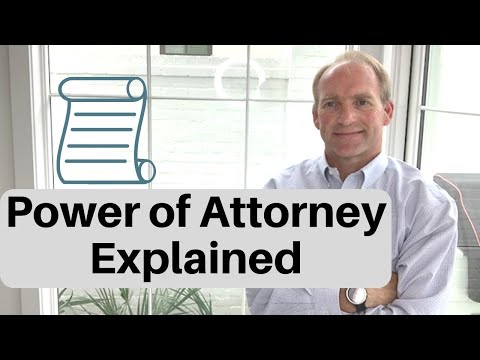
Welcome to this informative article on “Understanding the Significance of a Durable Power of Attorney in New York.” Before we delve into the intricacies of this topic, it is important to note that the information provided here is for educational purposes only. It should not be considered legal advice, and readers should always consult with trusted legal professionals or cross-reference with other reliable sources to ensure accuracy and applicability to their specific circumstances.
Now, let’s embark on our journey to unravel the significance of a durable power of attorney in the state of New York. To better comprehend this concept, we must first understand what a power of attorney is and why it is an essential legal tool in various situations.
In simple terms, a power of attorney (POA) is a legal document that grants someone, known as the “agent” or “attorney-in-fact,” the authority to act on behalf of another person, known as the “principal.” This authority can range from handling financial matters to making healthcare decisions, depending on the scope specified in the document.
A durable power of attorney, specifically, has a unique attribute that sets it apart from other types of POAs. Unlike a regular power of attorney, which becomes invalid if the principal becomes incapacitated or mentally incompetent, a durable power of attorney remains in effect even under these circumstances. This durability is crucial because it ensures that someone trusted is always able to manage the principal’s affairs when they are unable to do so themselves.
Now that we understand the basic concept of a durable power of attorney, let’s explore its significance in New York. The state of New York has specific laws and regulations governing powers of attorney, ensuring that they are valid and enforceable. These laws aim to safeguard the interests of both principals and agents, promoting transparency and accountability.
One significant aspect of a durable power of attorney in New York is its ability to assist individuals in planning for potential incapacity.
Exploring the Limitations and Drawbacks of a Durable Power of Attorney
Understanding the Significance of a Durable Power of Attorney in New York
A durable power of attorney (DPOA) is an important legal document that allows one person, known as the principal, to grant another person, known as the agent or attorney-in-fact, the authority to make financial and legal decisions on their behalf. This document is especially relevant in situations where the principal becomes incapacitated or unable to make decisions for themselves.
In the state of New York, a durable power of attorney is governed by the New York General Obligations Law, specifically Article 5, Title 15. This law sets out the requirements and limitations for a valid DPOA in New York.
Key Points to Understand:
Exploring Limitations and Drawbacks:
While a durable power of attorney can be a valuable tool in ensuring that your affairs are managed in the event of incapacity, it is important to understand its limitations and potential drawbacks:
The Advantages of Executing a Durable Power of Attorney
The Advantages of Executing a Durable Power of Attorney
A power of attorney is a legal document that grants someone the authority to make decisions on your behalf. In the context of estate planning, a durable power of attorney becomes especially important. It allows an individual, known as the principal, to appoint another person, referred to as the agent or attorney-in-fact, to act on their behalf in financial and legal matters if they become incapacitated or unable to make decisions.
In the state of New York, executing a durable power of attorney can offer several significant advantages. These advantages not only provide peace of mind but also ensure that your wishes are carried out effectively. Let’s explore some of these advantages:
Title: Understanding the Significance of a Durable Power of Attorney in New York
Introduction:
In the realm of US law, one concept that holds significant importance is the Durable Power of Attorney (DPOA). Specifically, this article aims to provide a comprehensive understanding of the significance of a Durable Power of Attorney within the legal framework of New York State. It serves as a crucial tool for individuals to plan and protect their interests in times of incapacity or unavailability. It is essential to note that the information provided in this article should be verified and cross-referenced with legal professionals to ensure its accuracy and applicability to specific situations.
Understanding the Durable Power of Attorney:
A Durable Power of Attorney is a legal document that grants someone, known as the agent or attorney-in-fact, the authority to act on behalf of another person, known as the principal. The “durable” aspect denotes that the authority granted remains effective even if the principal becomes incapacitated or unable to make decisions.
Significance in New York State:
1. Decision-Making Authority: A Durable Power of Attorney in New York provides the agent with broad powers to manage various aspects of the principal’s affairs. This includes financial matters, real estate transactions, banking, tax filings, and medical decisions, among others. It empowers the agent with the ability to make crucial choices and navigate legal matters on behalf of the principal.
2. Incapacity Planning: By executing a Durable Power of Attorney in advance, individuals can plan for potential incapacitation due to illness, injury, or advanced age. If a person becomes unable to make decisions independently, having a trusted agent appointed through a DPOA ensures that their affairs are managed efficiently and according to their wishes.
3. Avoiding Guardianship Proceedings: In the absence of a valid Durable Power of Attorney, individuals who become incapacitated may require guardianship proceedings through the court system.
